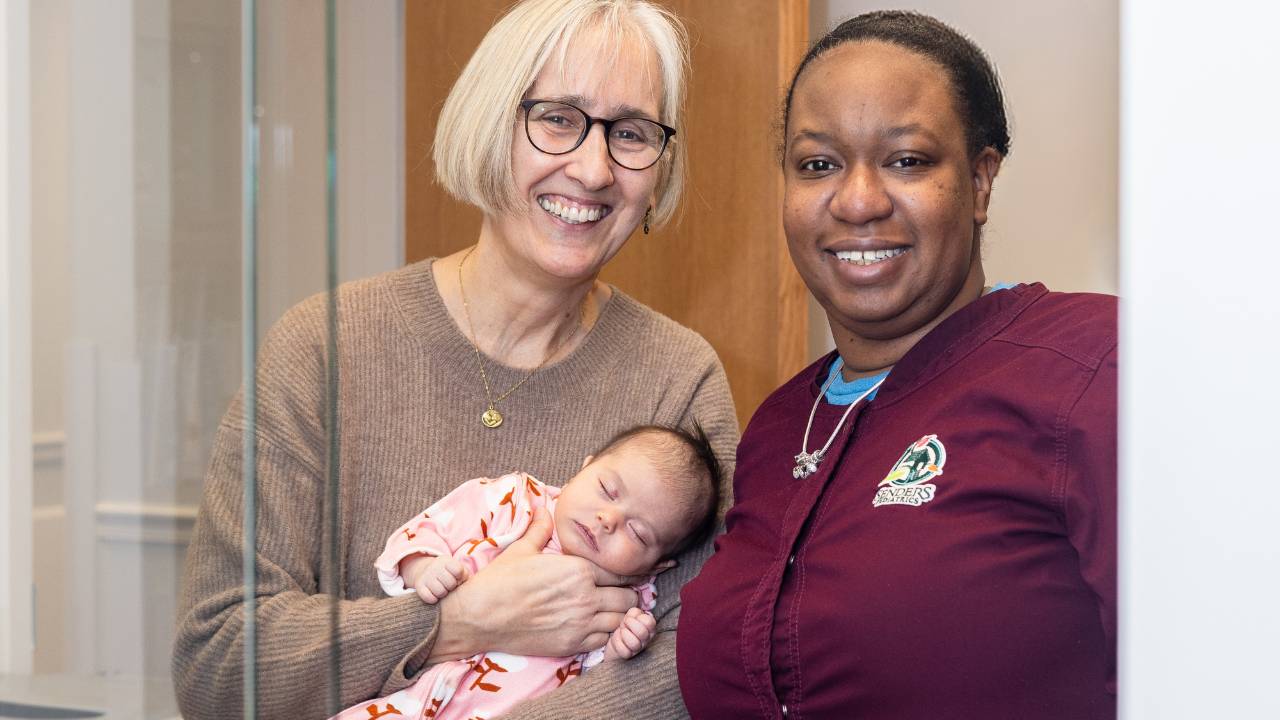Whose Responsibility is Breastfeeding?
Sep 14, 2022
This past year a medical resident asked me: “Whose responsibility is breastfeeding?”
On a very concrete level the question is simple: Breastfeeding involves the dyad. But, given we have both a parent and infant, which medical provider is responsible?
As a family physician, I know the family physicians’ model of care is well suited to care for the family and thus both the parent and infant. However, not all family physicians have received the necessary breastfeeding education, and many families do not see a family physician. So in the absence of a breastfeeding-knowledgeable family physician, breastfeeding care may end up being fragmented between the obstetrician, the pediatrician, and/or a lactation consultant.
Fragmented care
The question of “who is responsible for breastfeeding?” highlights the uneven care many families receive as they navigate breastfeeding difficulties. As a specialist in breastfeeding medicine, families are often referred to my practice after trying other resources. It is not uncommon to meet a family who, while navigating their challenges with pain and low milk supply, has seen a number of other practitioners.
Take the breastfeeding dyad presenting with pain at approximately 8 weeks postpartum after having seen their obstetrician, pediatrician and lactation consultant for persistent pain and received different advice from each provider. “Thrush,” says one, and “No thrush,” says another. “Tongue tie,” the family is advised, and the next day, “No tongue tie.” “The pain is normal,” they’re told by one provider, then advised to wean from breastfeeding by another. Typically, the answer to the family’s challenge is somewhere in between. Perhaps there is a tongue tie which resulted in cracked nipples and an infection that is not thrush but untreated Staphylococcus aureus. Or maybe it is infant torticollis that is contributing to a superficial latch.
With different opinions, families face difficulties deciding who to trust and where to seek care. As with any speciality in medicine, families get caught between the transitions. The stories of fragmented breastfeeding support highlight the need for all medical providers to be educated on breastfeeding concerns for both parent and infant. Having this knowledge helps providers identify needed care, and support the breastfeeding journey based on their scope of practice, guiding families on next steps when difficulties persist.
Responsibility of all health providers
American College of Obstetricians and Gynecologists (ACOG), American Academy of Pediatricians (AAP), and American Academy of Family Physicians (AAFP) all identify breastfeeding as part of their providers’ scope of practice. Breastfeeding support is the responsibility of all health providers caring for the breastfeeding dyad. To prevent early weaning in the first weeks postpartum, we need a team to support families.
Reframe the question “How can I support breastfeeding when I see the family?”
Where you fit in the team depends on your training, when you see the family, the resources available in your area, and your scope of practice. Sometimes support will be listening, identifying there is a problem, and connecting the family with the best resources. Other times it will be treating the infant for tongue tie and communicating with their obstetrician about possible nipple infection. Or it may be that the obstetrician treats the mastitis, identifies the breastfeeding dyad needs further guidance on latch, and refers for further lactation support. Or the primary care physician, needing to treat hypertension, might check LactMed Database and prescribe a medication compatible with continued breastfeeding.
In any scenario, the ideal is to counsel the family with practical tools at the visit and plan next steps if the difficulties continue. Recognizing we all have different levels of training and partnering with other health care providers is critical.
Breastfeeding is everyone’s responsibility.
The socioecological model of breastfeeding draws attention to the need for support at the individual, interpersonal, community, organizational and policy level. Advocating within our scope, facilitating communication with other health care providers, and partnering with the lactation community and family are all critical to providing continuity of care and supporting families’ needs to successfully navigate their breastfeeding journey and reach their individual goals.
~Ann M. Witt, MD, FABM, IBCLC





